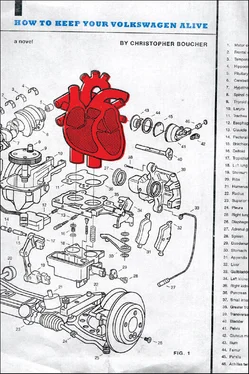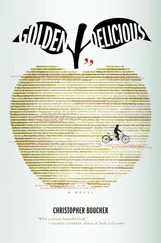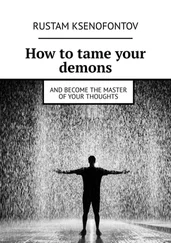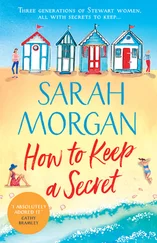“Look at the way the story spills out of it,” Emily said, gesturing to a page and its margins. “Do you realize what people would think of you if it was ever broadcast? And there are hardly any women in it, _____, any love.”
I grimaced — that word hurt my ears.
“Or, look at this!” she said, turning the page. “The story you wrote about your Dad’s—”
“That’s different,” I objected. “That one is a highway.”
“Even so,” she said. “This chemical — that’s all it is, by the way, a chemical in your blood — delivered you pages of loneliness. And death!”
“I was going for the exact opposite, though—”
“I know you were, sweetie,” she said.
“I was trying to write someone back to life — that’s not an easy thing to do!”
“But to even have to go there,” she said. “Wouldn’t it be nice to enjoy things as they are right now?”
She was so window, so kind, and I still maintain that she had my best interests in mind — that she just wanted me to be happy. And I remember feeling anxious during that discussion because the stakes seemed so high. She was asking me to make a choice that would affect our relationship for years to come. And women like Emily were not easy to find or create.
So I made an appointment and we went in. It was on a Tuesday in the spring. Emily and I were planning a trip to Ireland that summer, and I remember that she brought a book on Galway to read in the waiting room. As we waited, she put her arm over my shoulder and we flipped through the pictures: bipolar castles, soggy streets, democratic fields of green.
Then a nurse called me in. As I stood up, Emily kissed me in the ear, which she did whenever she wanted to tell me something very good or very bad. “This is right ,” she hissed. “I’m sure of it.”
“Me too,” I said.
I followed the nurse into a large room with a metal table attached to a ten-foot-long tube-shaped machine. The nurse had me take off my clothes and lay down on the table. Two needles came in and stood over me.
“Good morning — Mr. _____?” said the needle to my right. “Ready to go?”
“Will this hurt?” I said.
The needle made a guardrail face. “I don’t want to give you the wrong impression,” he said.
I didn’t have a chance to ask him what that meant. The needles strapped my wrists and ankles in place, told me to brace myself, and drove small clusters of needles into my fingernails.
My mind went white, no-word, with pain. I screamed and wept. The needle chuckled. “Oh, come on,” he said. “Is it that bad?”
The other needle drove a cluster of needles into the bottom of my testicles. My white mind shuddered and turned. I pulled against the straps. “Easy, easy,” the needle to my right said. “Just imagine how you’ll feel when this is over. Like a new man, right?”
“Right,” I gasped.
“Just two more, OK?”
I nodded. He drove a lengthy needle into one of my ears and then the other.
Then he was leaning over me. “Mr. _____?” he said.
I opened my eyes.
“This table’s going to slide forward now, into this tube,” he said, and he put his hand on the machine behind my head.
“I can’t take any more needles,” I begged.
“No more needles,” he said, smiling. “This part’s easy — it’s just like a tanning salon.”
I nodded.
“OK, here we go.” He pressed a button and the tube slid forward.
Inside the chamber, the walls lit up and I was bathed in a strange-smelling light. I could feel that light communicating in some way with the needles that the needle had driven in; I felt a uniform pressure in my legs and chest and head, and a singing in my balls, hands and brain.
My breath began to slow down, and I became numb to the pressure. At some point I drifted off. I didn’t wake up until the table slid out of the tube. I opened my eyes and the needle was standing over me.
“I fell asleep,” I said.
“That happens,” the needle said, pulling the needles out of my hands. Then he held up a thick plastic bag. It was filled with an opaque, silvery liquid. “There it is.”
“That’s the writing?”
He nodded. “You’re all set, my friend. No more writing for you,” he said.
“Not even checks?” I joked.
He laughed and slapped me on the shoulder.
• • •
As it turns out, though, Emily wasn’t a real woman. I’d written her, compiled from women I’d seen and wished I could know, plus some that had been my friends or partners along the way. I walked out into the waiting room and there was no one there — no woman, no book on Ireland.
After a few months, though, I came to accept this. In fact, I filed it as further evidence to support the decision I’d made. I mean, I’d created a woman, just as I had a terrible tree and the death of a loved one.
But then, in the year that followed, my father really did die, of a second heart attack, while working on the Pachysandra Trail, and it split open my chest: I lost my job, stopped going outside, didn’t want contact with anyone. All I wanted to do was write, to make something, something wonderfully fake, a power made of dust and blood that I could turn on when I needed it and turn off when I’d had enough. If I could write myself away from my own life, get lost, even fucking better.
So I went back to the clinic, spoke again to the needle. He leaned back in his chair and crossed his arms. “I don’t know what to tell you,” he said. “It’s a one-way procedure — we discard the writing immediately. The state requires that we do so.”
“What about a transplant — someone else’s writing?”
He rubbed his head.
“There’s so much I haven’t done yet,” I told him. “My mother — I haven’t written about her, or any of the great friends I’ve had. I’ve loved so many people, and I want to power every one of them.
“There must be something you can do,” I said.
The needle leaned in. “There’s a very controversial nose in California who does writing transplants, but with various outcomes,” he said. “The procedure is possible in theory, but it’s pretty dangerous. Your body might reject the writing you’re given.”
“It’s worth a try,” I said. “Isn’t it?”
“Not in my opinion, no. Even if your body accepts it, _____, you’ll have someone else’s writing in your veins. Which means that you’ll sign your name differently, that you’ll have different stylistic tendencies. And remember how much the removal hurt? That was a bee sting compared to what they’ll do to your vessels and veins in order to inject foreign writing into your blood.”
The procedure took fifteen hours to complete, but I was unconscious for two days and heavily sedated for the following two. When I finally woke up I felt worse than ever before. I couldn’t move my arms or legs. My head felt like someone was smashing hammers against the inside of my skull.
The next day I was able to sit up, to read a little. The Memory of My Father flickered into my room in the morning, and the Two Sides of My Mother brought me jell-o and iced tea.
That afternoon, the needle came by. He sat down and smiled dryly at me. “All the diagnostics look fine so far, which is very good news. How do you feel?”
“Sad,” I told him.
III. TOOLS AND SPARE PARTS
BENEATH THE UNDERDOG
That spring, Colorado stole my brother. I came home to Longmeadow (a forgotten, out-of-circulation coin), and my parents told me the news. I walked in the doorway and they were just standing there.
“Colorado wants Bryan,” the Other Side of My Mother said.
Читать дальше












